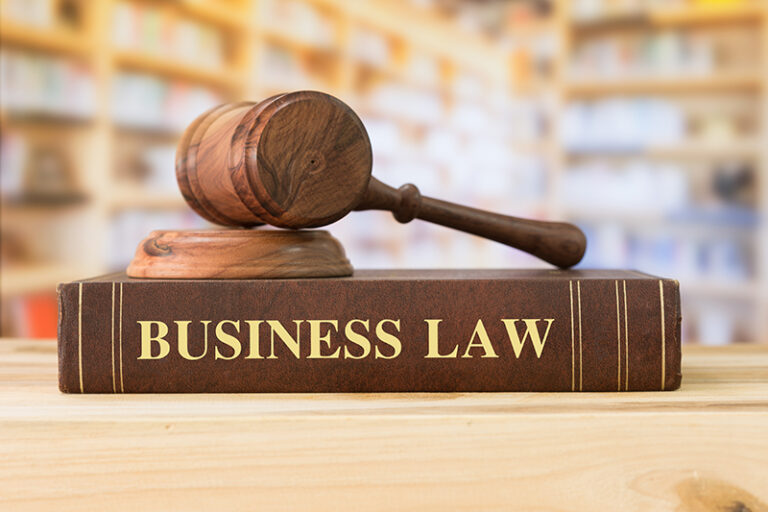Understanding the Differences Between Compensatory and Punitive Damages
If you’ve been injured due to someone else’s negligence—whether in a car accident, medical malpractice case, or wrongful death incident—it’s important to understand the differences between punitive and compensatory damages.
These two categories of damages play a crucial role in determining how victims are financially restored after a traumatic event. A qualified personal injury lawyer in Douglasville can help you navigate the legal system, understand your legal options, and fight for the compensation you deserve.
In personal injury cases, courts may award compensatory damages to cover medical expenses, lost wages, property damage, and even emotional distress. In more extreme cases involving grossly negligent behavior, victims may also be eligible to pursue punitive damages. Understanding how these damages differ—and how they’re calculated—can be vital to building a strong personal injury claim and achieving fair compensation.
What Are Punitive and Compensatory Damages?
When someone is injured due to another party’s negligence, the civil court may award financial compensation. These awards typically fall into two main categories: compensatory damages and punitive damages. Understanding the differences between punitive and compensatory damages is essential for anyone involved in personal injury cases.
Compensatory Damages
Compensatory damages are designed to compensate the injured party for the losses they’ve suffered as a result of the defendant’s actions. These damages are further divided into economic damages and non economic damages.
- Economic damages include medical expenses, lost wages, property damage, and other quantifiable financial losses like out of pocket expenses.
- Non economic damages cover intangible effects such as pain and suffering, emotional distress, physical pain, and diminished quality of life. These types of damages are more subjective but just as important in determining a fair monetary award.
In most personal injury cases, compensatory damages awarded are intended to help restore the plaintiff’s life to the condition it was in before the injury occurred.
Punitive Damages
Punitive damages, on the other hand, serve a very different purpose. Unlike compensatory damages, which are meant to reimburse, punitive damages are meant to punish the defendant and deter similar behavior in the future. The right to award punitive damages arises only in cases where the defendant’s actions were especially harmful, involving gross negligence, willful misconduct, or intentional harm.
To successfully pursue punitive damages, the plaintiff must present clear and convincing evidence that the defendant acted with reckless disregard for the safety of others. Courts may also consider the defendant’s financial situation when determining the amount of punitive damages to impose.
In short, compensatory vs punitive damages comes down to purpose: one seeks to make the victim whole; the other seeks to make an example of the at fault party.
Differences Between Punitive and Compensatory Damages
In personal injury cases, damages fall into two categories: compensatory and punitive. While both may result in a monetary award, they serve very different roles in the legal system. Here’s a clear breakdown of the key differences between punitive and compensatory damages:
| Compensatory Damages | Punitive Damages |
|---|---|
| Meant to compensate the victim for losses | Meant to punish the defendant for reckless or malicious conduct |
| Common in most personal injury cases | Reserved for cases involving gross negligence or intentional harm |
| Cover medical expenses, lost wages, emotional distress, property damage, and other actual losses | Do not compensate for losses — awarded to deter similar behavior |
| Calculated based on actual damages and non economic losses | Based on the severity of the defendant’s actions and financial situation |
| Requires standard proof of negligent behavior | Requires clear and convincing evidence of grossly negligent or willful misconduct |
| Focuses on the impact to the plaintiff’s life | Focuses on the defendant’s conduct and the need to deter future harm |
While compensatory damages awarded aim to make the injured party whole by covering quantifiable financial losses and intangible losses, the right to pursue punitive damages only arises when the court finds the defendant acted in an especially harmful way.
Understanding these two forms of compensation is essential when evaluating your legal options after an injury. A knowledgeable personal injury lawyer in Douglasville can help you determine whether your case qualifies for both.
How a Personal Injury Lawyer in Douglasville Can Help with Compensatory and Punitive Damages
Navigating a personal injury case on your own can be overwhelming—especially when you’re dealing with medical bills, emotional distress, and pressure from the insurance company. Whether you’re pursuing compensatory damages for your actual losses or exploring the possibility of punitive damages due to gross negligence, having an experienced lawyer on your side can make all the difference.
Here’s how a personal injury lawyer in Douglasville can help you:
Evaluate Your Claim
A lawyer can assess your situation and determine whether you may be eligible for both compensatory and punitive damages. This includes analyzing the defendant’s actions, the extent of your injuries, and whether clear and convincing evidence exists to pursue punitive damages.
Calculate Full and Fair Compensation
Compensatory damages are based on both economic and non economic damages. Your attorney will help you document your medical expenses, lost wages, property damage, and pain and suffering to build a case for maximum recovery. They understand how damages are calculated and can ensure no aspect of your losses is overlooked.
Handle the Insurance Company
Insurance adjusters often try to minimize payouts or deny claims altogether. Your attorney can manage all communication with the insurance company, protect your rights, and negotiate for a monetary award that reflects the true impact on your life.
Prove Gross Negligence or Misconduct
To award punitive damages, Georgia law requires clear and convincing evidence of grossly negligent or intentional conduct. Your lawyer will gather and present that evidence in court, helping to prove that the defendant’s behavior goes beyond standard negligent behavior.
Guide You Through the Legal Process
From filing your personal injury claim to presenting your case in civil court, your lawyer will handle every step of the legal process. They’ll explain your legal options, represent your interests, and keep you informed from start to finish.
Advocate for Maximum Damages Awarded
Whether you’re dealing with physical injuries, non economic losses, or long-term impacts on your plaintiff’s life, your attorney’s goal is to secure the full amount of damages awarded under Georgia law—including possible exceptions to punitive damage caps.
At Hartley, Rowe & Fowler, P.C., we believe every injured client deserves skilled, compassionate, and aggressive representation. If you’ve been hurt due to someone else’s negligent behavior or intentional misconduct, contact us today for a free consultation. We’re here to help you fight for the fair compensation you deserve.
Frequently Asked Questions About Compensatory and Punitive Damages
What is the difference between compensatory and punitive damages in personal injury cases?
The key difference lies in purpose. Compensatory damages are meant to compensate the injured party for actual damages like medical expenses, lost wages, and emotional distress. In contrast, punitive damages are meant to punish the defendant for gross negligence or intentional wrongdoing and to deter others from engaging in similar behavior.
Can I get both compensatory and punitive damages in a Georgia personal injury case?
Yes, it’s possible to receive both types of damages if the circumstances of your case justify it. In most personal injury cases, you’ll receive compensatory damages for your losses. If the defendant’s actions were especially reckless or malicious, your attorney may help you pursue punitive damages as well, provided there’s clear and convincing evidence of gross misconduct.
How are compensatory damages calculated in a personal injury claim?
Compensatory damages are calculated based on both economic damages (like medical bills, property damage, and lost income) and non economic damages (like pain and suffering and loss of enjoyment of life). The court looks at documentation, expert testimony, and how the injuries have impacted the plaintiff’s life to determine a fair monetary award.
What qualifies as gross negligence for punitive damages in Georgia?
In Georgia, gross negligence refers to behavior that shows a reckless disregard for the safety of others. This could include things like drunk driving, intentionally ignoring known risks, or willfully harmful actions. To award punitive damages, the court must find clear and convincing evidence that the defendant acted with conscious indifference to the consequences.
Are punitive damages taxable in personal injury settlements?
Yes, under IRS rules, punitive damages are generally considered taxable income, even in personal injury cases. This is because they are not meant to compensate for a specific financial loss but to punish the defendant. However, compensatory damages for physical injuries are typically not taxable.
Is there a cap on punitive damages in Georgia?
Yes. In Georgia, punitive damages are generally capped at $250,000. However, there are exceptions to this cap, such as in product liability cases or when the defendant’s actions involve intent to harm or being under the influence of drugs or alcohol. A personal injury lawyer in Douglasville can help you determine whether these exceptions apply to your case.
Do I need a lawyer to pursue punitive damages in a personal injury case?
Yes, pursuing punitive damages is complex and requires meeting a high legal standard. You’ll need to present clear and convincing evidence that the defendant’s behavior was more than just negligent—it was reckless, intentional, or malicious. A skilled personal injury lawyer in Douglasville can guide you through the legal process and improve your chances of securing a favorable outcome.
Get the Legal Support You Deserve
If you’ve been injured due to someone else’s negligent behavior or reckless actions, don’t wait to understand your rights. Whether you’re seeking compensatory damages for your medical expenses, lost wages, and pain and suffering, or you believe you may be entitled to punitive damages due to gross negligence, having the right legal team can make all the difference.
At Hartley, Rowe & Fowler, P.C., we’re proud to represent injury victims across Douglasville, Georgia, with honesty, experience, and dedication. Our goal is to help you recover the maximum damages awarded under Georgia law and hold the at fault party accountable.
Contact us today to schedule your free consultation and speak with a trusted personal injury lawyer in Douglasville about your case.
Call us at 678-825-6004 — we’re here to help.










